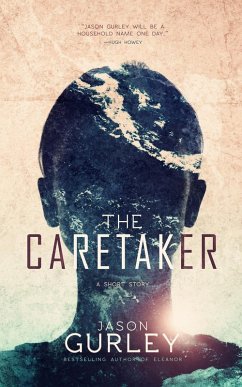
The Caretaker State: Bangladesh's Experiment with Non-Partisan Governance (eBook, ePUB)

PAYBACK Punkte
0 °P sammeln!
The Caretaker State: Bangladesh's Experiment with Non-Partisan Governance offers an insightful journey into one of South Asia's most unique political innovations - the non-partisan caretaker government system of Bangladesh. Born out of crisis and public demand, this extraordinary mechanism was designed to ensure free and fair elections by temporarily handing power to an unelected, neutral administration. But did it truly deliver?This book unpacks the origins, rise, constitutional validation, and eventual fall of the caretaker government system, analyzing its impact on democracy, elections, and...
The Caretaker State: Bangladesh's Experiment with Non-Partisan Governance offers an insightful journey into one of South Asia's most unique political innovations - the non-partisan caretaker government system of Bangladesh. Born out of crisis and public demand, this extraordinary mechanism was designed to ensure free and fair elections by temporarily handing power to an unelected, neutral administration. But did it truly deliver?
This book unpacks the origins, rise, constitutional validation, and eventual fall of the caretaker government system, analyzing its impact on democracy, elections, and political trust in Bangladesh. From the dramatic resignation of autocrats to the bold yet controversial experiments with judicial leadership, each chapter explores the socio-political dynamics that shaped this governance model.
Key highlights include:
The 1990 mass uprising and Justice Shahabuddin Ahmed's interim leadership
The 13th Amendment and its role in formalizing neutrality
Electoral successes and tensions during the 1996 and 2001 transitions
The extended 2007-2008 emergency rule and its democratic implications
The abolition via the 15th Amendment and its contested legacy
The resurgence of public demand for neutral elections in the 2020s
The 2024 student-led movement and the appointment of an interim leadership
Written in a clear, analytical, and accessible style, this book is essential reading for students of political science, policy-makers, researchers, and general readers curious about democracy's challenges in the Global South.
Author Muhammad Shahadat Hossain blends detailed historical context with balanced critique, offering a rare inside look at how Bangladesh attempted - and struggled - to separate politics from elections.
This book unpacks the origins, rise, constitutional validation, and eventual fall of the caretaker government system, analyzing its impact on democracy, elections, and political trust in Bangladesh. From the dramatic resignation of autocrats to the bold yet controversial experiments with judicial leadership, each chapter explores the socio-political dynamics that shaped this governance model.
Key highlights include:
The 1990 mass uprising and Justice Shahabuddin Ahmed's interim leadership
The 13th Amendment and its role in formalizing neutrality
Electoral successes and tensions during the 1996 and 2001 transitions
The extended 2007-2008 emergency rule and its democratic implications
The abolition via the 15th Amendment and its contested legacy
The resurgence of public demand for neutral elections in the 2020s
The 2024 student-led movement and the appointment of an interim leadership
Written in a clear, analytical, and accessible style, this book is essential reading for students of political science, policy-makers, researchers, and general readers curious about democracy's challenges in the Global South.
Author Muhammad Shahadat Hossain blends detailed historical context with balanced critique, offering a rare inside look at how Bangladesh attempted - and struggled - to separate politics from elections.
Dieser Download kann aus rechtlichen Gründen nur mit Rechnungsadresse in A, B, CY, CZ, D, DK, EW, E, FIN, F, GR, H, IRL, I, LT, L, LR, M, NL, PL, P, R, S, SLO, SK ausgeliefert werden.












